McLeod Structural Heart Program
Offers Minimally-Invasive Options
The McLeod Structural Heart Program specializes in percutaneous (minimally invasive) and surgical treatment of patients with a variety of heart disease, including patients who do not qualify for conventional open-heart procedures. Examples of minimally invasive treatments include Transcatheter Aortic Valve Replacement (TAVR) for the treatment of aortic stenosis, MitraClip for the treatment of mitral regurgitation, and ASD/PFO closure.
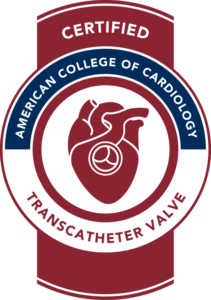
The McLeod Structural Heart Program achieved the American College of Cardiology’s Transcatheter Valve Certification, the second program in the state of South Carolina to attain this prestigious recognition. This designation recognizes the expertise and commitment to high-quality outcomes in treating patients receiving transcatheter valve repair and replacement.
Physician and self-referrals are welcome to our program by calling (843) 667-1891.
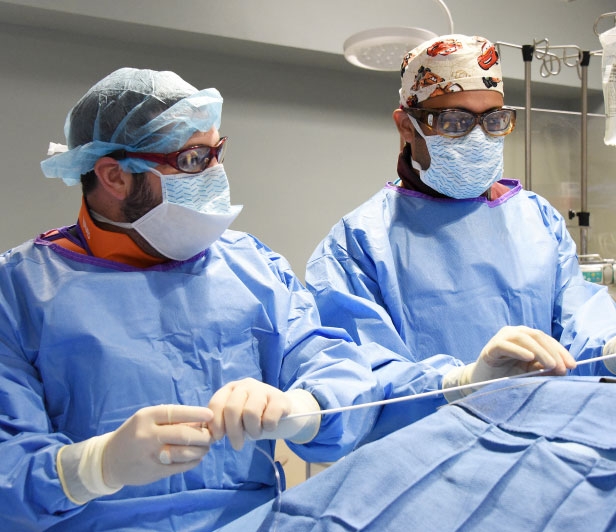
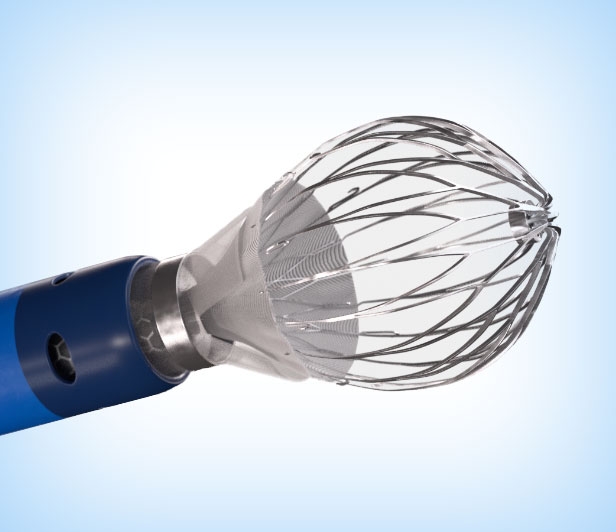
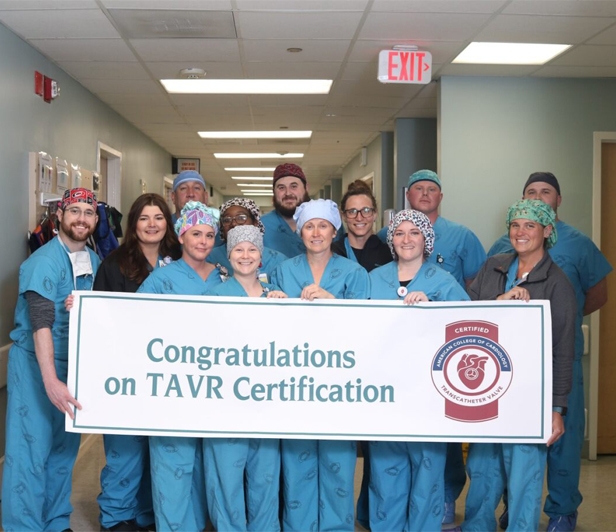
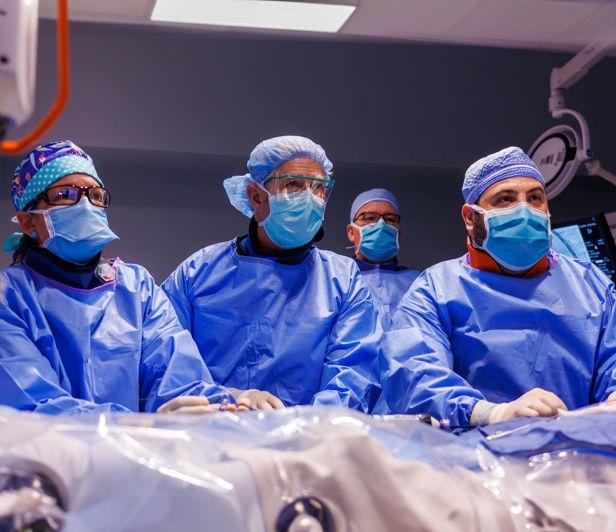
-
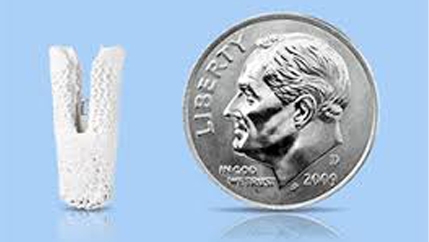
MitraClip
For patients, who continue to have symptoms with a severely leaking mitral valve despite medical therapy, a less invasive mitral valve repair with MitraClip may be a safe and effective alternative to open-heart surgery. A specialized team consisting of an interventional cardiologist, a cardiothoracic surgeon and a cardiac anesthesiologist, work together to determine a patient’s eligibility for this procedure. Tests to measure the size of the valve help the team establish if the MitraClip is a good option for treatment.
-
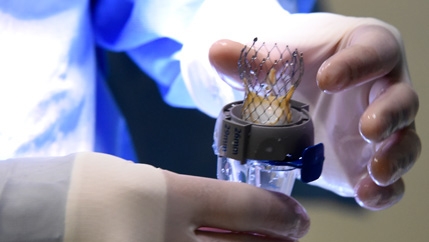
Replacing a Diseased Heart Valve with Minimally Invasive Methods
Transcatheter Aortic Valve Replacement (TAVR), a minimally invasive procedure performed at McLeod Regional Medical Center, allows physicians to replace a patient’s diseased or damaged heart valve without removing the old valve. For patients, whose health cannot withstand the stress of an open heart procedure, the TAVR procedure may be an option. Often, patients who undergo the TAVR procedure have other medical conditions that make them a better candidate for this type of surgery.
READ MORETAVR is performed similar to a heart catheterization. The physician inserts a catheter, a long flexible thin tube with the artificial valve, through a small incision in an artery in the leg, then guides it to the heart using X-ray imaging. The valve is precisely positioned across the diseased valve. The new valve is then released and starts functioning immediately. The old valve provides the foundation to hold the new valve in place.
The TAVR procedure is most commonly performed for a disease called aortic stenosis. Patients with aortic stenosis often experience symptoms such as profound fatigue, and shortness of breath particularly with exertion. This can make everyday tasks difficult to manage, which impacts quality of life. Other symptoms include chest pain, fainting, or an overall feeling of weakness. Patients experiencing any of these symptoms should inform their primary care provider or request an evaluation with McLeod Cardiology Associates.
Close -

Device Remove Clots, Restores Blood Flow
The FlowTriever device is a minimally invasive, catheter-based device that is available at McLeod to remove blood clots from the lung arteries. It allows for more rapid treatment of pulmonary embolism in many higher risk patients.
READ MOREThe physician inserts the FlowTriever catheter into one of the leg veins. The FlowTriever is then advanced over a carefully positioned wire to the lung arteries where the clot can be aspirated, or suctioned, into the catheter and removed from the body. In some cases, self-expanding, soft mesh disks can be used to improve removal of the clot.
With the removal of the clots, the procedure improves blood flow to the lungs, and often provides rapid improvement in shortness of breath, oxygen levels, blood pressure, and heart rate.
Close -
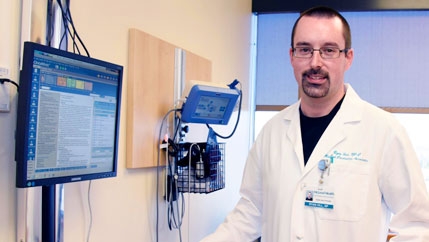
Heart Valve Clinic Expands Convenience and Diagnostic Care for Heart Patients
To eliminate the need for multiple appointments with different specialties, McLeod heart valve clinics in Florence enable patients to meet at a single session with a team of specialists, including cardiologists and surgeons. After a series of tests, this cardiac team will talk with the patient about follow-up and treatment. Your physicians can refer you for an appointment by calling (843) 777-8258.
-
The Watchman Device
Patients who have atrial fibrillation without significant heart valve disease, and who are on anticoagulant medications, may be a candidate for a device available at the McLeod Heart and Vascular Institute called the WATCHMAN Left Atrial Appendage Closure Device.
READ MOREThe WATCHMAN, about the size of a quarter, is implanted at the opening of the left atrial appendage to prevent blood clots from entering the blood stream and potentially causing a stroke. The device is a one-time implant that does not need to be replaced.
McLeod began offering the WATCHMAN device more than five years ago. Now the creators of WATCHMAN have developed the next generation, the WATCHMAN FLX. The new device is available in more sizes, which enables the treatment of a wider variety of patients.
Close
-
McLEOD REGIONAL MEDICAL CENTER FLORENCE
843-777-2000 -
McLEOD DARLINGTON
843-777-1100 -
McLEOD DILLON
843-774-4111 -
McLEOD LORIS
843-716-7000 -
McLEOD SEACOAST
843-390-8100 -
McLEOD CHERAW
843-537-7881 -
McLEOD CLARENDON
803-433-3000



-
McLEOD REGIONAL MEDICAL CENTER FLORENCE
843-777-2000 -
McLEOD DARLINGTON
843-777-1100 -
McLEOD DILLON
843-774-4111 -
McLEOD LORIS
843-716-7000 -
McLEOD SEACOAST
843-390-8100 -
McLEOD CHERAW
843-537-7881 -
McLEOD CLARENDON
803-433-3000
 Find a Doctor
Find a Doctor  Locations
Locations  Services
Services